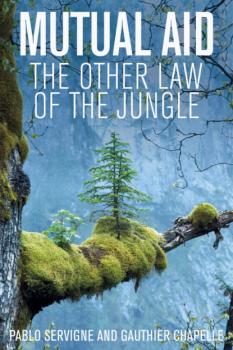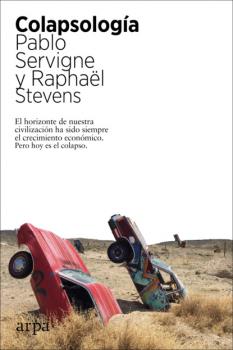Pablo Servigne
Список книг автора Pablo ServigneMutual Aid
In the merciless arena of life, we are all subject to the law of the jungle, to ruthless competition and the survival of the fittest – such is the myth that has given rise to a society that has become toxic for our planet and for our and future generations. But today the lines are shifting. A growing number of new movements and thinkers are challenging this skewed view of the world and reviving words such as ‘altruism’, ‘cooperation’, ‘kindness’ and ‘solidarity’. A close look at the wide spectrum of living beings reveals that, at all times and in all places, animals, plants, microorganisms and human beings have practised different forms of mutual aid. And those which survive difficult conditions best are not necessarily the strongest, but those which help each other the most. Pablo Servigne and Gauthier Chapelle explore a vast, forgotten continent of mutual aid in order to discover the mechanisms of this ‘other law of the jungle’. In so doing, they provide a more rounded view of the world of living things and give us some of the conceptual tools we need to move beyond the vicious circle of competition and self-destruction that is leading our civilization to the verge of collapse.
Colapsología
Hoy la utopía ha cambiado de bando: somos unos ilusos al creer que todo puede continuar como antes. El colapso es el horizonte de nuestra generación, el comienzo de nuestro futuro. Muchas son las preguntas que surgen con solo mencionar la palabra colapso: ¿Qué sabemos del estado global de la Tierra? ¿Y del de nuestra civilización? ¿Es comparable un colapso de las cotizaciones de la bolsa con uno de la biodiversidad? ¿Pueden arrastrarnos la convergencia y la perpetuación de las distintas «crisis» hacia una vorágine irreversible? ¿Hasta dónde puede llegar todo esto? ¿En cuánto tiempo? ¿Es posible vivir un desmoronamiento «civilizado», de manera más o menos pacífica? Pablo Servigne, ingeniero agrónomo y doctor en Biología, y Raphaël Stevens, investigador y especialista en transición ecológica, analizan todos los estudios científicos que han mostrado la posibilidad real de un colapso, y ofrecen una visión interdisciplinaria de un tema aún hoy tabú para muchos: la Colapsología. En este libro ponen palabras a nuestras intuiciones sobre las consecuencias de las múltiples crisis que estamos experimentando: crisis ecológica, energética, demográfica, financiera, de salud pública… Sin embargo, para Servigne y Stevens el peor de los escenarios no tiene por qué llegar a hacerse realidad; ni se rinden, ni caen en el catastrofismo. Por el contrario, nos invitan a reaccionar, a actuar y dar a luz a una sociedad más sostenible, más amigable, más humana. «Una lectura urgentísima. […] Un libro que merece ser comprado, leído y apoyado por cualquier ecologista». Le Monde"Un libro impactante […], una especie de manual del «dolor ecológico» y de cómo afrontarlo". Manuel Rivas, El País
Another End of the World is Possible
The critical situation in which our planet finds itself is no longer in doubt. Some things are already collapsing while others are beginning to do so, increasing the possibility of a global catastrophe that would mean the end of the world as we know it. As individuals, we are faced with a daily deluge of bad news about the worsening situation, preparing ourselves to live with years of deep uncertainty about the future of the planet and the species that inhabit it, including our own. How can we cope? How can we project ourselves beyond the present, think bigger and find ways not just to survive the collapse but to live it? In this book, the sequel to How Everything Can Collapse , the authors show that a change of course necessarily requires an inner journey and a radical rethinking of our vision of the world. Together these might enable us to remain standing during the coming storm, to develop a new awareness of ourselves and of the world and to imagine new ways of living in it. Perhaps then it will be possible to regenerate life from the ruins, creating new alliances in differing directions – with ourselves and our inner nature, between humans, with other living beings and with the earth on which we dwell.


